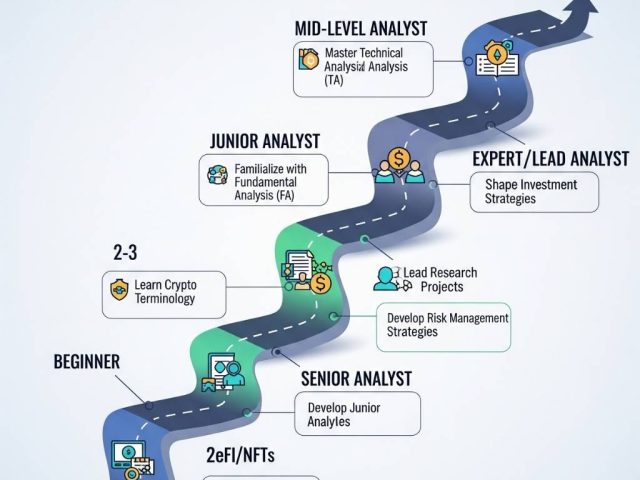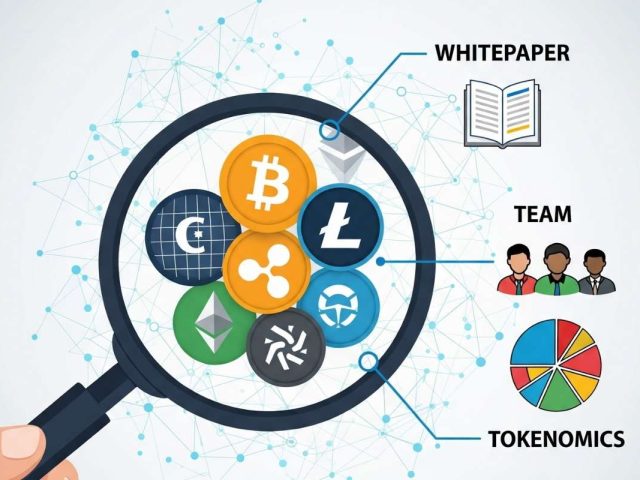The world is interconnected, and the seamless flow of goods and services across borders is essential for our modern way of life. Supply chains, the intricate networks that connect producers, manufacturers, distributors, and retailers, play a pivotal role in ensuring that products reach consumers efficiently and safely. However, traditional supply chain management has faced numerous challenges, including lack of transparency, inefficiencies, and security risks. This is where blockchain technology, with its decentralized and immutable nature, has the potential to revolutionize the industry.
What is a Supply Chain?
A supply chain is a complex system that encompasses all the activities involved in getting a product from its raw materials to the end consumer. It includes various stages such as sourcing, production, distribution, and retail. In today’s globalized economy, supply chains can span continents, involving countless intermediaries and stakeholders.
The Intricacies of Modern Supply Chains
Modern supply chains are increasingly complex due to factors like globalization, e-commerce, and just-in-time inventory management. These intricacies can lead to challenges such as:
- Complexity: Managing a vast network of suppliers, manufacturers, and distributors can be overwhelming.
- Visibility: Tracking products throughout the supply chain can be difficult, especially for complex products or those involving multiple intermediaries.
- Efficiency: Inefficiencies in any part of the supply chain can lead to delays, increased costs, and customer dissatisfaction.
- Sustainability: Ensuring that products are sourced and produced ethically and sustainably is becoming increasingly important.
The Never-Ending Quest for Efficiency and Transparency
The pursuit of efficiency and transparency in supply chains has been a constant endeavor for businesses. Traditional methods often involve manual processes and paper-based records, which can be time-consuming, error-prone, and difficult to audit. This has led to a search for innovative solutions to improve supply chain management.
The Current Challenges of Supply Chain Management
Despite the best efforts of businesses, supply chains continue to face significant challenges. Some of the most pressing issues include:
Lack of Visibility and Traceability
One of the biggest problems in supply chain management is the lack of visibility and traceability. It can be difficult to track products as they move through the supply chain, especially for complex products or those involving multiple intermediaries. This can lead to inefficiencies, delays, and difficulties in identifying and addressing issues.
Counterfeiting and Fraud
Counterfeiting and fraud are serious problems in many industries. Counterfeit products can harm consumers and damage the reputation of legitimate brands. Blockchain technology can help to address these issues by providing a secure and transparent way to track products from their origin to the end consumer.
Inefficiencies and Delays
Inefficiencies and delays are common in supply chains. These can be caused by a variety of factors, such as poor planning, unexpected disruptions, or communication breakdowns. Inefficiencies can lead to increased costs, decreased customer satisfaction, and lost revenue.
Information Silos and Data Fragmentation
Information silos and data fragmentation are another major challenge in supply chain management. Different stakeholders in the supply chain often have their own systems and data, which can make it difficult to share information and collaborate effectively. This can lead to inefficiencies, delays, and a lack of visibility.
How Blockchain Can Revolutionize Supply Chain Management
Blockchain technology has the potential to revolutionize supply chain management by addressing many of the challenges outlined above. Here are some of the ways in which blockchain can be used to improve supply chain efficiency and transparency:
Enhanced Transparency and Traceability
Blockchain can provide a high level of transparency and traceability in supply chains. By recording every transaction and event on an immutable ledger, blockchain can help to track products from their origin to the end consumer. This can be particularly useful for products that are sensitive to counterfeiting, fraud, or ethical concerns.
From Farm to Fork: Tracking Every Step of the Journey
Blockchain can be used to track food products from the farm to the fork. This can help to ensure that food is safe, traceable, and ethically sourced. For example, consumers can use a smartphone app to scan a QR code on a food product and see its entire journey, including the farm it was grown on, the processing facility it went through, and the retailer it was sold at.
Improved Efficiency and Streamlined Operations
Blockchain can help to improve efficiency and streamline operations in supply chains. By automating processes and reducing paperwork, blockchain can help to reduce costs and improve turnaround times. For example, smart contracts can be used to automate tasks such as invoicing, payments, and shipping.
Reduced Counterfeiting and Fraud
Blockchain can help to reduce counterfeiting and fraud in supply chains. By providing a secure and transparent way to track products, blockchain can make it more difficult for counterfeiters to operate. Additionally, blockchain can be used to verify the authenticity of products, which can help to protect consumers from purchasing counterfeit goods.
Data Security and Enhanced Visibility
Blockchain offers enhanced data security compared to traditional databases. The decentralized nature of blockchain makes it difficult for hackers to tamper with or manipulate data. Additionally, blockchain can provide greater visibility into supply chains, allowing businesses to identify and address issues more quickly.
Sustainable and Ethical Sourcing: Blockchain’s Role
Blockchain can play a crucial role in promoting sustainable and ethical sourcing. By providing transparency and traceability, blockchain can help to ensure that products are sourced from suppliers who adhere to ethical and environmental standards. For example, blockchain can be used to track the origin of minerals and ensure that they are not sourced from conflict zones.
Real-World Examples of Blockchain in Supply Chain Management
Blockchain technology is already being used in various industries to improve supply chain management. Here are a few examples:
Walmart’s Food Safety Initiative
Walmart, one of the world’s largest retailers, has implemented a blockchain-based system to track food products from farm to fork. This system helps to ensure the safety and traceability of food products, especially those that are susceptible to foodborne illnesses. By using blockchain, Walmart can quickly identify and recall contaminated products, reducing the risk of foodborne outbreaks.
De Beers’ Diamond Tracking System
De Beers, a leading diamond company, has developed a blockchain-based system called the Tracr platform to track diamonds from mine to retail. This system helps to prevent the sale of conflict diamonds and ensures that diamonds are ethically sourced. By using blockchain, De Beers can provide consumers with a certificate of authenticity that verifies the diamond’s origin and journey.
The Future of Blockchain in Supply Chain Management
The potential of blockchain in supply chain management is vast. As the technology continues to evolve, we can expect to see even more innovative applications. However, there are still some challenges that need to be addressed before blockchain can be fully realized in supply chains.
Overcoming Challenges and Achieving Wider Adoption
One of the main challenges facing the wider adoption of blockchain in supply chains is the need for interoperability between different blockchain networks. To truly realize the benefits of blockchain, it is essential that different systems can communicate and share data seamlessly. Additionally, there is a need for education and awareness about blockchain technology among businesses and consumers.
A More Secure, Transparent, and Efficient Future for Supply Chains
The future of supply chain management looks promising with the integration of blockchain technology. By enhancing transparency, improving efficiency, and reducing the risk of fraud, blockchain has the potential to transform the way businesses operate. As the technology continues to mature, we can expect to see even more innovative applications that benefit both businesses and consumers.
Conclusion
Blockchain technology offers a powerful solution to the challenges faced by traditional supply chain management. By providing enhanced transparency, traceability, and efficiency, blockchain can help to create more secure, reliable, and sustainable supply chains. As the technology continues to evolve, we can expect to see even more innovative applications that benefit businesses and consumers alike.
FAQs
-
What are the benefits of using blockchain in supply chain management?
- Increased transparency and traceability
- Improved efficiency and streamlined operations
- Reduced counterfeiting and fraud
- Enhanced data security
- Sustainable and ethical sourcing
-
What are the challenges of implementing blockchain in supply chains?
- Interoperability between different blockchain networks
- Education and awareness about blockchain technology
- Cost and complexity of implementation
-
How can blockchain help to reduce counterfeiting and fraud in supply chains?
- By providing a secure and transparent way to track products, blockchain can make it more difficult for counterfeiters to operate. Additionally, blockchain can be used to verify the authenticity of products, which can help to protect consumers from purchasing counterfeit goods.
-
What are some real-world examples of blockchain being used in supply chain management?
- Walmart’s food safety initiative
- De Beers’ diamond tracking system
-
What is the future of blockchain in supply chain management?
- The future of blockchain in supply chain management looks promising. As the technology continues to evolve, we can expect to see even more innovative applications that benefit businesses and consumers alike.
Scentia Research Group: Your Partner in Blockchain Success
If you’re serious about building a successful blockchain project, contact Scentia today. We can help you make your vision a reality.
At Scentia, we’re passionate about helping blockchain projects succeed. We use our expertise in qualitative research technologies to identify and fix problems that could derail your project. Our team of lawyers, data scientists, and engineers has a deep understanding of the blockchain landscape, and we’re committed to providing our clients with the insights they need to make informed decisions.
We believe that blockchain technology has the potential to revolutionize the way we do business. However, we also recognize that there are many challenges that need to be addressed before this potential can be fully realized. That’s where Scentia comes in. We’re here to help you navigate these challenges and build a successful blockchain project.
If you’re looking for a partner who can help you take your blockchain project to the next level, contact Scentia today. We’d be happy to discuss your needs and how we can help you achieve your goals.
Here are some of the things that make Scentia different:
- Our team of experts has a deep understanding of both the technical and legal aspects of blockchain.
- We use a unique qualitative research methodology that allows us to identify and fix problems that other methods may miss.
- We’re committed to providing our clients with the insights they need to make informed decisions.
To learn more about how Scentia can help your blockchain project succeed, please read our latest report on the potential of blockchain in supply chain management.





